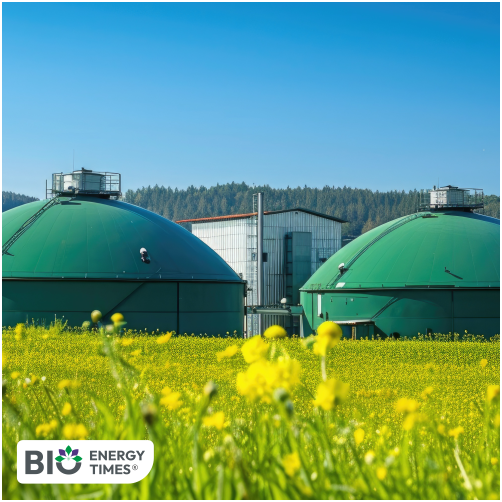New Zealand Energy Minister Hon Simon Watts has underlined the government’s firm commitment to building a strong and sustainable biogas industry, describing the renewable energy source as a “strategic opportunity” to enhance energy security, cut emissions, and support regional growth.
Addressing the Biogas Bridge Forum in Wellington, Watts told stakeholders from across the energy, waste, agriculture, and industrial sectors that biogas would play a key role in the country’s shift toward a more resilient, cost-effective, and renewable energy system.
He emphasised that biogas technologies—particularly biomethane—can help decarbonise sectors that are difficult to electrify, while also boosting regional energy resilience amid declining natural gas supplies.
To support this transition, Watts announced the launch of a dedicated Biogas Work Programme. The initiative is centred around three key objectives: providing clear signals to drive private sector investment, addressing regulatory obstacles, and working in close partnership with the industry to foster growth.
“You’ve told us that clear and consistent government direction is crucial—and we’ve heard you,” he said.
The Minister confirmed that the Ministry of Business, Innovation and Employment (MBIE), in collaboration with other agencies, is reviewing existing regulatory settings to identify and remove barriers that could slow sector development. He also reiterated the government’s commitment to ongoing regulatory reform to help the renewable gas sector gain traction.
Watts stressed the importance of collaboration, noting that the forum itself showcased how cross-sector leadership can accelerate progress.
As part of the government’s next phase of action, Watts detailed several policy moves. Among them is a planned amendment to the Commerce Act through the Energy and Electricity Security Bill, which would bring biomethane pipeline services under the same regulatory framework as natural gas—an adjustment aimed at reducing investor uncertainty and unlocking sector growth.
He also announced a joint initiative between MBIE and the Ministry for the Environment to investigate ways to redirect organic waste from landfills toward energy generation. This approach would cut emissions while contributing to a circular economy, turning waste into a valuable resource.
The Energy Efficiency and Conservation Authority (EECA) is contributing by mapping out the availability, seasonal trends, and energy potential of organic waste feedstocks that are suitable for anaerobic digestion. This data, available through user-friendly tools, is designed to support investor confidence and inform business decisions.
Meanwhile, the Gas Industry Company (GIC) is working on a certification system to ensure biogas quality, considering renewable gas targets, and updating network rules to allow for biomethane injection.
Watts also highlighted existing support tools like the Waste Minimisation Fund and the Regional Infrastructure Fund, encouraging industry players to make full use of them.
He pointed to the recently announced Investment Boost in Budget 2025 as a significant opportunity to finance clean energy infrastructure projects.
The Minister also noted the potential for capturing biogenic carbon dioxide—a by-product of biogas production—for use under the government’s proposed Carbon Capture, Utilisation and Storage (CCUS) framework. Under this plan, companies capturing and storing CO₂, including from biogas, could be eligible for credits through the Emissions Trading Scheme, further incentivising low-emissions technologies.
In his closing remarks, Watts thanked industry groups GasNZ and the Bioenergy Association of New Zealand for their leadership in organising the forum and pushing the biogas agenda forward.
“The government stands firmly behind you,” he said. “We’re listening, we’re taking action, and we’re excited about what lies ahead. Let’s keep driving progress together.”















